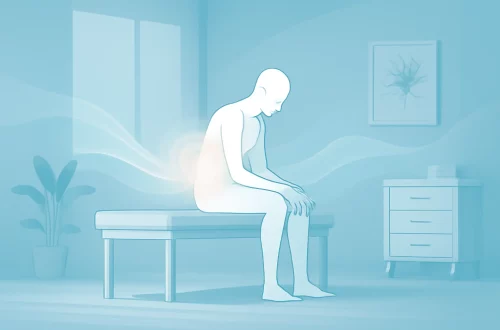
Is Smoking a Joint a Day Considered Heavy Cannabis Use?
Cannabis use has been a subject of intense debate for decades, as societal attitudes shift and laws evolve. With the increasing legalization of marijuana in various regions, users are exploring its effects and implications on health, lifestyle, and well-being. One common practice among cannabis consumers is smoking a joint daily. This raises critical questions about the definition of heavy cannabis use and its associated effects.
The perception of what constitutes “heavy” use can vary significantly from person to person, influenced by their experiences, the context of use, and even cultural attitudes towards cannabis. As more individuals incorporate cannabis into their daily routines, understanding the nuances of usage patterns becomes increasingly important. This article delves into the implications of smoking a joint a day, examining various aspects such as tolerance, health effects, and the broader societal context. As we navigate this complex topic, it’s essential to consider the balance between individual choice and the potential consequences of regular cannabis consumption.
Understanding Cannabis Use and Its Patterns
Cannabis use encompasses a wide range of patterns and methods of consumption. From occasional recreational use to daily consumption, each individual’s relationship with cannabis is unique. Understanding these patterns requires a closer look at the reasons behind use, the frequency of consumption, and the amount consumed.
For many, cannabis serves as a means of relaxation, pain relief, or social connection. These motivations can shape how often someone partakes. A person who smokes a joint daily may view it as a ritual that enhances their quality of life, while another might consider the same practice excessive. The concept of tolerance is also crucial; frequent users often develop a resistance to the substance’s effects, leading them to increase their intake over time.
Additionally, the method of consumption plays a role in determining usage patterns. Smoking, vaping, edibles, and tinctures all deliver cannabis differently, impacting the user’s experience and the amount they consume. For example, a joint might contain a specific amount of THC, the psychoactive component of cannabis, which can influence how one feels after consumption.
The stigma surrounding cannabis use can further complicate perceptions of what constitutes heavy use. In some cultures, any form of regular consumption may be frowned upon, while others might embrace it as a normal part of life. These societal attitudes can affect how individuals view their own usage and the judgments they face from others.
In summary, understanding cannabis use involves considering a variety of factors, including personal motivations, consumption methods, and societal perceptions. This complexity is essential when discussing whether smoking a joint a day is deemed heavy use or simply a part of one’s lifestyle.
Health Effects of Daily Cannabis Smoking
The health implications of smoking cannabis daily are an important area of concern and discussion. While cannabis has been recognized for its potential therapeutic benefits, such as pain relief and anxiety reduction, daily consumption can also lead to adverse effects.
Regular exposure to the smoke produced by burning cannabis can irritate the lungs, similar to tobacco smoke. Research indicates that individuals who smoke cannabis regularly may experience chronic bronchitis symptoms, such as coughing and phlegm production. While some studies suggest that cannabis may not lead to the same level of lung damage as tobacco, the inhalation of any kind of smoke can pose risks to respiratory health.
Moreover, the psychoactive effects of THC can influence mental health. For some individuals, daily use may exacerbate anxiety or depression, particularly in those predisposed to mental health issues. It’s also important to note that cannabis affects people differently; what might be a calming experience for one person could lead to paranoia for another.
Daily cannabis use can also lead to the development of cannabis use disorder (CUD), characterized by cravings and withdrawal symptoms when not consuming the substance. Individuals who smoke a joint every day may find it challenging to reduce their intake or cease altogether, raising concerns about dependence and its social implications.
Additionally, cognitive effects are a significant consideration. Regular cannabis use can impair short-term memory, attention, and decision-making capabilities. These cognitive issues can have real-world consequences, especially for those engaged in activities requiring focus and concentration, such as work or education.
While many individuals may enjoy the benefits of daily cannabis use, it is crucial to weigh these against the potential health risks. Individuals should remain vigilant and aware of their consumption patterns, considering the impact on both physical and mental health.
Societal Perspectives on Cannabis Use
The societal context surrounding cannabis use is rapidly evolving, particularly as more regions move towards legalization. This shift has led to a reexamination of what constitutes heavy use and the implications of daily consumption.
In areas where cannabis is legal, users often feel more comfortable discussing their habits openly. This visibility can foster a sense of community among users but can also lead to misunderstandings about the nature of cannabis consumption. For instance, smoking a joint daily might be normalized in some circles, while others may still view it as excessive or irresponsible.
Moreover, the legal framework around cannabis affects public perception. In places where cannabis remains illegal, individuals may feel compelled to hide their usage, leading to negative associations and stigma. This stigma can discourage users from seeking help or engaging in open conversations about their consumption, contributing to a lack of understanding about cannabis and its effects.
As legalization spreads, there is also a push for education surrounding responsible use. Campaigns advocating for informed consumption aim to provide users with the knowledge necessary to make safe choices regarding their cannabis use. These initiatives often emphasize moderation and awareness of personal limits, which can be particularly relevant for daily users.
The evolving landscape of cannabis legislation and societal attitudes highlights the importance of dialogue and education. As more people explore cannabis use, understanding the implications of daily consumption becomes essential for fostering a well-informed community.
Making Informed Choices About Cannabis Consumption
Navigating the world of cannabis consumption requires informed decision-making. For those considering or already smoking a joint daily, it’s essential to assess personal motivations, health effects, and societal influences.
Self-awareness is key. Reflecting on why one chooses to consume cannabis daily can help individuals determine if their habits align with their personal values and lifestyle goals. Are they seeking relaxation, pain relief, or social engagement? Understanding these motivations can guide users in evaluating their consumption patterns.
Additionally, individuals should stay informed about the potential health effects of regular cannabis use. This includes understanding both the benefits and risks associated with daily consumption. Engaging with healthcare professionals, particularly those knowledgeable about cannabis, can provide valuable insights and guidance.
Moderation is also crucial. While some individuals may find that daily use enhances their lives, others may benefit from reducing their intake or exploring alternative methods of consumption. Tracking usage and being mindful of one’s limits can help prevent dependence and ensure a healthier relationship with cannabis.
Finally, engaging in open conversations about cannabis use, whether with friends, family, or healthcare providers, can foster a supportive environment. Sharing experiences and information can demystify cannabis and promote responsible use within the community.
In conclusion, understanding cannabis consumption, particularly daily use, involves a multifaceted approach. By considering personal motivations, health implications, and societal attitudes, individuals can make informed choices that align with their values and health goals.
**Disclaimer**: This article is not intended as medical advice. Individuals should consult with a healthcare professional regarding any health concerns or questions about cannabis use.




